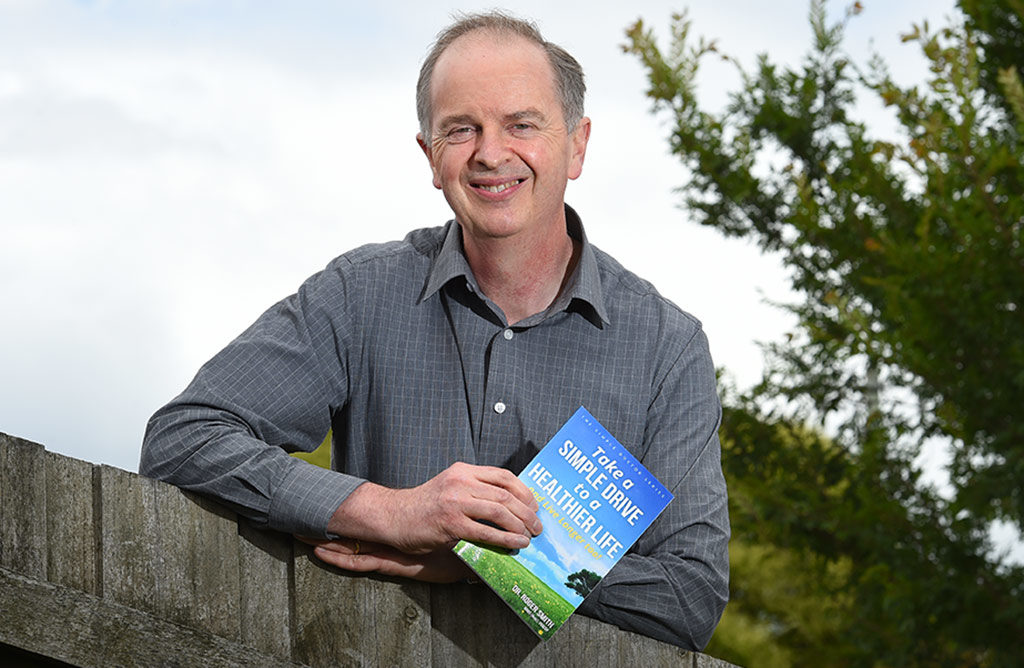Patients say the most amazingly funny things. That’s why I started thinking about writing a book with all of these humorous stories in it. The idea actually started with Medical Observer. About 10 years ago the magazine had a system where it asked for humorous stories to publish in a column, and I must have submitted about 30 stories over the years. At the same time, I was thinking about writing a book to help educate the average patient — I’ve always tried to educate patients if time allows. Then one day, while I was swimming, the thought occurred to me. A book on health would be pretty boring, so why not combine the two ideas? I could just write one book about health issues with a humorous twist. So I came up with the idea for my book: Take a simple drive to a healthier life. The link between looking after yourself and looking after your car is not an original one, but it does get the message across. The aim is to promote simple health messages so that the average person knows what they can do to help themselves, while acknowledging that luck does play a role in health. Over about four months, I wrote the book in dribs and drabs in the evening. As I went along, I realised I had no idea how to publish anything. I got someone online to help edit the book and provide guidance on the publishing process. It was all self-published. It’s very hard to get a book published professionally because it’s got to be commercially viable. I haven’t made my money back but I’m not miles behind. I spent about $2000 to self-publish the book. Now that I’ve broken even, more or less, I just made it available as a free e-book on iTunes. I don’t get a cent from the downloads but I have no qualms about that. As a GP, I have always seen it as part of my role to educate the patient about their condition, as well as treat them. Often you use all your time for the initial problem, but sometimes you can do a few preventive things. Over the years you get all these bits of paper in your filing cabinet and I try to give people handouts relevant to their condition. It seems people will spend money on those they love and care about, but won’t look after their own health until it’s too late. The big problem is always that sustained change is hard. It’s hard to measure how it helps, so maintaining the will to change is difficult. Every time I see a patient I try to remind them how to improve their health.
Dr Roger Smith
Melbourne, VIC
Antony Scholefield/Josie Hayden

